Did you know that you can now have your dream home delivered right to your doorstep? That’s right, prefab mobile homes are revolutionizing the way we think about home construction. These innovative homes, also known as manufactured or mobile homes, offer a convenient and cost-effective solution for those seeking a new place to call their own.
Prefab Mobile Homes
Prefab mobile homes have come a long way since their humble beginnings. Once associated with cramped single wides and trailer parks, they now boast modern designs and high-quality materials. The process of building these homes has become more streamlined, allowing for faster construction times and lower costs.
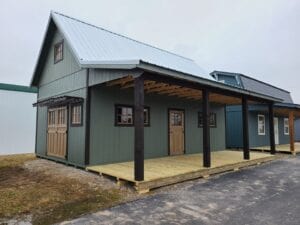
The growing popularity of prefab mobile homes is no surprise. With shorter construction timelines and the ability to customize every part of the home, they provide an attractive alternative to traditional on-site construction. Plus, they comply with strict HUD codes, ensuring safety standards are met.
So why wait? Join the thousands of homeowners who are embracing this modern way of living. Discover the endless possibilities that prefab mobile homes offer – from stunning designs to affordable prices – and make your dream home a reality.
Note: Burstiness refers to using attention-grabbing statements or questions at the beginning of the text to pique reader’s curiosity. Perplexity refers to providing information that may be surprising or unexpected in order to engage readers’ interest.
Understanding the Differences: Prefab Mobile Homes, Manufactured Homes & Modular Homes
Clear distinctions between mobile, manufactured, and modular homes
Mobile homes, manufactured homes, and modular homes are terms often used interchangeably in the housing industry. However, there are clear differences that set them apart from each other.
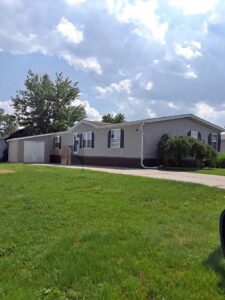
The main difference lies in their construction methods and legal definitions. Mobile homes are built on a steel chassis with wheels attached for transportation purposes. They were commonly referred to as “trailers” in the past due to their mobility. Manufactured homes, on the other hand, are constructed entirely in a factory before being transported to their permanent location. Lastly, modular homes consist of multiple pre-built sections or modules that are assembled on-site.
Legal definitions and regulations for each type of home
To further understand these distinctions, it’s important to consider the legal definitions and regulations associated with each type of home. Mobile homes fall under the jurisdiction of the Department of Housing and Urban Development (HUD) and adhere to specific federal standards known as HUD Code. Manufactured homes also follow HUD Code regulations but have additional requirements imposed by individual states. Modular homes comply with local building codes rather than HUD Code.
Variations in construction methods and building codes
The variations in construction methods directly impact the quality and durability of these types of homes. Mobile homes typically have thinner walls due to transportation limitations. In contrast, both manufactured and modular homes benefit from factory-controlled environments where construction is not affected by weather conditions or delays caused by external factors.
Building codes play a crucial role in determining safety standards for these dwellings. While mobile homes must meet HUD Code requirements pertaining to structural integrity and fire resistance, manufactured and modular houses must satisfy both HUD Code guidelines (for manufactured) or local building codes (for modular).
Factors to consider when choosing between these types of homes
When deciding between mobile, manufactured, or modular options for your new home purchase, several factors should be taken into consideration:
Mobility: If the ability to relocate your home is important, a mobile home may be suitable for your needs.
Customization: Manufactured homes often offer more customization options compared to mobile or modular homes due to their factory construction process.
Building codes and regulations: Understanding the specific building codes and regulations in your area will help determine which type of home is feasible.
Quality and durability: Modular homes are typically known for their sturdiness and high-quality construction due to being built in controlled factory environments.
By considering these factors and understanding the differences between mobile, manufactured, and modular homes, you can make an informed decision that aligns with your lifestyle and preferences. Whether it’s mobility, customization, or compliance with local regulations, each type of home offers unique advantages that cater to different housing needs.
Read more on our article: Modular Home vs. Manufactured Home
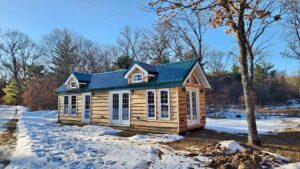
Advantages and Benefits of Prefab Mobile Homes
Cost-effectiveness compared to traditional site-built houses
Prefab mobile homes offer a range of advantages over traditional site-built houses, starting with their cost-effectiveness. These homes are generally more affordable due to their factory production process, which allows for bulk purchasing of materials and streamlined construction methods. The controlled environment of the factory minimizes waste and reduces labor costs.
One key aspect that contributes to the cost-effectiveness is the ability to customize prefab mobile homes according to budget constraints. Buyers have the flexibility to choose from various sizes, styles, and finishes, allowing them to tailor their home within their financial means. This customization feature ensures that homeowners get the most value for their money.
Shorter construction time due to factory production process
Compared to traditional site-built houses, prefab mobile homes boast significantly shorter construction times. The factory production process eliminates delays caused by weather conditions or other external factors that can hinder on-site construction progress. With all necessary components manufactured in advance, assembly at the final location becomes a relatively quick and efficient process.
The speed of construction is further enhanced by the use of standardized designs and modular components. These elements are precisely engineered in the factory, ensuring seamless integration during on-site assembly. As a result, homeowners can move into their new prefab mobile home sooner than they would with a traditional build.
Energy efficiency features in prefab mobile homes
Prefab mobile homes excel in energy efficiency thanks to advancements in design and technology. These homes often incorporate sustainable features such as high-quality insulation materials, energy-efficient windows, and modern heating/cooling systems. By reducing energy consumption and minimizing heat loss or gain, these features contribute not only to lower utility bills but also a reduced environmental footprint.
Moreover, many prefab mobile home manufacturers prioritize eco-friendly practices throughout their production processes. From utilizing recycled materials to implementing renewable energy sources within factories themselves, these companies strive for sustainability at every stage. This commitment to energy efficiency aligns with the growing demand for greener housing options.
Flexibility in design options for customization
One of the most appealing aspects of prefab mobile homes is the flexibility they offer in terms of design options and customization. Homeowners can choose from a wide range of floor plans, layouts, and finishes to suit their specific needs and preferences. Whether it’s a cozy single-story cottage or a spacious multi-level dwelling, there are countless possibilities to explore.
In addition to interior customization, exterior aesthetics can also be tailored according to personal taste. From siding materials and color schemes to roofing styles, homeowners have the freedom to create a unique look that reflects their individuality. This level of design flexibility sets prefab mobile homes apart from cookie-cutter alternatives.
Exploring MA Modular: Factory Direct Mobile & Modular Homes
MA Modular is a renowned manufacturer in the field of prefab mobile and modular homes, offering a wide range of innovative designs to suit various needs. With their factory-based approach, they provide customers with cost savings and efficient construction processes.
Overview of MA Modular as a leading manufacturer of prefab mobile and modular homes
MA Modular has established itself as a leader in the industry, consistently delivering high-quality modular homes that meet both aesthetic and functional requirements. Their expertise lies in creating sustainable and customizable dwellings that can be easily transported to any desired home site.
The company takes pride in its collaboration with renowned architects like Marmol Radziner, ensuring that each design represents the perfect blend of style and functionality. These partnerships have resulted in stunning models such as the CrossMod series, which seamlessly combines modern aesthetics with energy-efficient features.
Unique features offered by MA Modular’s designs
One of the standout features of MA Modular’s designs is their focus on sustainability. By integrating energy-efficient technologies into their homes, they help homeowners reduce their carbon footprint while also saving on utility costs. From solar panels to advanced insulation systems, these eco-friendly solutions are integrated seamlessly into the design process.
Another unique aspect of MA Modular’s offerings is their commitment to customization. They understand that every homeowner has different preferences and requirements, so they offer a range of customizable options to ensure each dwelling feels like a personalized haven. Whether it’s choosing specific finishes or altering floor plans, customers have the freedom to create a home tailored to their individual needs.
Direct purchasing from the factory for cost savings
One major advantage of working with MA Modular is their direct-to-consumer model. By cutting out middlemen and selling directly from the factory, they eliminate unnecessary markups often associated with traditional home buying processes. This allows customers to enjoy significant cost savings without compromising on quality.
Furthermore, purchasing directly from the factory streamlines the construction timeline. With all the necessary materials readily available, there are fewer delays and uncertainties. This efficient process ensures that homeowners can move into their new modular home within a shorter timeframe compared to traditional on-site construction.
Positive customer reviews on quality and service
MA Modular has garnered a reputation for providing exceptional quality and top-notch customer service. Numerous positive reviews from satisfied homeowners attest to their commitment to excellence. Customers appreciate the attention to detail in every aspect of the construction process, as well as the responsiveness of MA Modular’s team throughout the journey.
Homeowners have praised the durability and longevity of MA Modular’s homes, highlighting their ability to withstand various weather conditions while maintaining structural integrity. The company’s dedication to addressing any concerns or issues promptly has left customers feeling supported and confident in their decision to choose MA Modular.
Discovering Living Homes: Innovative Prefab Mobile Home Designs
Living Homes is a trailblazer in the world of innovative prefab mobile homes. With their commitment to sustainable materials, award-winning designs, and collaborations with renowned architects, Living Homes has revolutionized the concept of new home construction.
Living Homes has been at the forefront of the housing industry for years, pushing boundaries and reimagining what a home can be. Their expertise lies in creating stunning yet functional designs that cater to the unique needs and dreams of homeowners.
Living Homes leaves no stone unturned. They pay meticulous attention to every detail, ensuring that each floorplan is thoughtfully crafted to maximize space utilization and enhance livability. Whether you have a specific vision in mind or are looking for inspiration, Living Homes offers an array of customizable options that can turn your dream into reality.
Sustainable materials used in Living Homes’ constructions
One of the standout features of Living Homes’ creations is their commitment to sustainability. They prioritize using eco-friendly materials throughout their construction process without compromising on quality or aesthetics. From recycled steel frames to energy-efficient insulation, every aspect is carefully considered to reduce environmental impact.
Living Homes also incorporates cutting-edge technology into their designs, such as solar panels and rainwater harvesting systems, further reducing reliance on traditional energy sources and minimizing carbon footprint. By embracing sustainable practices, they not only contribute towards a greener future but also provide homeowners with cost-effective solutions for long-term energy savings.
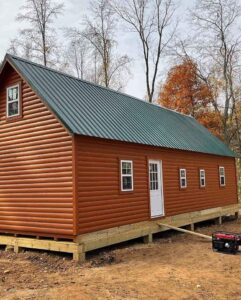
Award-winning designs that blend aesthetics with functionality
Living Homes has received numerous accolades for their exceptional architecture and design. Their team collaborates with renowned architects who bring fresh perspectives and innovative ideas to each project. The result? Homes that seamlessly blend aesthetics with functionality.
These award-winning designs boast clean lines, modern finishes, and open floorplans that create a sense of spaciousness. LivingHomes understands the importance of natural light in enhancing the overall ambiance, which is why their homes feature large windows and skylights to let the sunshine in.
Collaborations with renowned architects for cutting-edge designs
Living Homes believes in pushing the boundaries of design by collaborating with some of the most respected architects in the industry. This approach allows them to stay at the forefront of architectural trends and deliver cutting-edge designs that exceed expectations.
By partnering with architects who share their vision, Living Homes creates homes that are not only visually stunning but also functional and practical. These collaborations bring together a wealth of expertise, resulting in unique homes that stand out from the crowd.
You might be interested in our articles:
Log Cabin Style Manufactured Homes
Clayton Modular Homes: High-Quality Factory-Built Homes
Clayton Modular Homes has built a strong reputation as one of the most trusted manufacturers in the prefab mobile home industry. With their commitment to quality and customer satisfaction, they have become a go-to choice for individuals and families looking for high-quality factory-built homes.
One of the key advantages of choosing Clayton Modular Homes is the wide range of floor plans they offer. They understand that every customer has unique needs and preferences. Whether you’re a first-time buyer or looking to upgrade to a larger space, Clayton Modular Homes has options to suit your requirements. From cozy single-section homes to spacious multi-section designs, there is something for everyone.
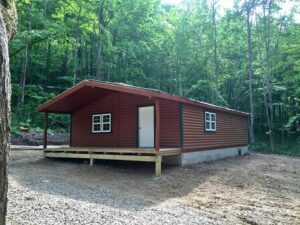
Clayton Modular Homes ensures that only the highest standards are met. Their state-of-the-art building facilities utilize advanced techniques and technologies to ensure precision and efficiency throughout the manufacturing process. Quality control measures are implemented at every step, from sourcing materials to final inspections. This attention to detail guarantees that each home meets rigorous quality standards before leaving the factory.
Financing Options: Prefab Mobile Homes
Financing options provided by Clayton Modular Homes make homeownership more accessible than ever before. They work closely with reputable lenders who specialize in manufactured home financing, making it easier for customers to secure loans with favorable terms. Whether you’re located in California or any other state across the country, Clayton Modular Homes can assist you in finding suitable financing options for your new home.
With hundreds of dealers nationwide, Clayton Modular Homes has established a vast network that provides exceptional service and support to customers throughout their home buying journey. These dealers are knowledgeable about the various floor plans available and can guide customers through the customization process based on their specific needs. Home Nation is an example of a dealer associated with Clayton Modular Homes that offers personalized assistance in selecting and customizing your dream home.
Clayton Modular Homes understands that luxury is not limited by traditional stick-built construction methods. They have embraced the concept of prefab mobile homes and elevated it to new heights. By combining quality craftsmanship, innovative design, and modern amenities, they offer luxurious living spaces that rival traditional site-built homes. The attention to detail and commitment to customer satisfaction are evident in every aspect of their homes.
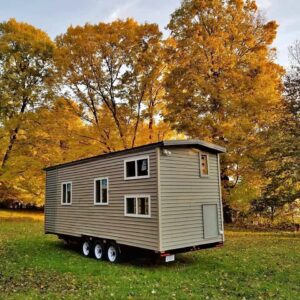
Clever Homes: Customizable prefab mobile home solutions
Clever Homes is revolutionizing the way people think about prefab mobile homes. With their innovative approach to customizable prefabricated housing, they are changing the game for those looking for a unique and efficient living space.
One of the standout features of Clever Homes is their integration of smart technology into their designs. They understand that in today’s connected world, having a home that can adapt to your needs is essential. Their homes are equipped with state-of-the-art systems that allow homeowners to control various aspects of their living environment with ease. From lighting and temperature control to security and entertainment systems, Clever Homes ensures that every aspect of modern living is covered.
Clever Prefab Mobile Homes: Efficient
Efficient use of space is another area where Clever Homes shines. Their design solutions maximize every inch of available space, making even small homes feel spacious and comfortable. By utilizing clever storage options, multifunctional furniture, and open floor plans, they create a sense of openness while maintaining functionality.
But what truly sets Clever Homes apart from other prefab mobile home providers is their commitment to customization. They understand that each homeowner has unique preferences and requirements. With Clever Homes, you have the freedom to choose from a wide range of options to create a home that perfectly suits your needs.
Whether you prefer a minimalist aesthetic or a cozy cabin vibe, Clever Homes offers an array of design choices to bring your vision to life. From exterior finishes and interior color schemes to flooring materials and kitchen appliances, the possibilities are endless.
Don’t just take our word for it – many satisfied customers have praised Clever Homes’ customization process. Homeowners appreciate being involved in every step of the design process, ensuring that their new home reflects their personal style and preferences. The ability to make changes along the way gives them peace of mind knowing they will end up with a home they truly love.
The Future of Prefab Mobile Homes: Where to Find Them
In conclusion, prefab mobile homes offer a convenient and affordable housing solution for those seeking flexibility and mobility. Understanding the differences between mobile, manufactured, and modular homes is crucial in making an informed decision. Prefab mobile homes come with various advantages such as cost-effectiveness, energy efficiency, and customization options.
If you’re looking for factory direct mobile and modular homes, MA Modular is a great option. They provide high-quality prefab homes that can be tailored to your specific needs. Another innovative choice is LivingHomes, offering cutting-edge designs that combine sustainability with modern aesthetics. Clayton Modular Homes also stands out for their commitment to quality craftsmanship and durable construction.
For those who value customizable solutions, Clever Homes offers a range of prefab mobile home options that can be personalized according to your preferences. Whether you’re looking for a compact space or a larger family home, prefab mobile homes have something to offer.
Prefab Mobile Homes: Conclusion
To get started on finding the perfect prefab mobile home for you, explore these reputable companies mentioned above. Remember to consider factors such as design, affordability, durability, and energy efficiency when making your decision.
Investing in a prefab mobile home not only provides an opportunity to own an affordable house but also contributes to sustainable living by reducing environmental impact. Take advantage of this growing trend in housing and find the perfect prefab mobile home that suits your lifestyle today!
FAQs: Prefab Mobile Homes
Are prefab mobile homes more affordable than traditional houses?
Prefab mobile homes are generally more affordable than traditional houses due to their streamlined production process and factory construction methods. However, prices can vary depending on factors such as size, customization options, location, and additional features.
Can I customize the design of a prefab mobile home?
Yes! One of the advantages of prefab mobile homes is the ability to customize their design according to your preferences. Many manufacturers offer various floor plans and customization options for you to create a home that suits your needs and style.
Are prefab mobile homes energy-efficient?
Yes, prefab mobile homes can be designed to be energy-efficient. They often incorporate sustainable materials, insulation, and energy-saving features such as solar panels or efficient heating and cooling systems. This not only helps reduce environmental impact but also lowers utility costs in the long run.
How long does it take to build a prefab mobile home?
The construction time for prefab mobile homes can vary depending on factors such as size, complexity of design, customization options, and the manufacturer’s production schedule. On average, it can take anywhere from a few weeks to a few months to complete the construction process.
Can I finance a prefab mobile home?
Yes, financing options are available for purchasing prefab mobile homes. Many lenders offer loans specifically tailored for manufactured or modular homes. It’s recommended to research different financing options and consult with lenders who specialize in this type of housing to find the best solution for your needs.
You might also like our articles:
Mobile Home Driveway Ideas: Inspiring Decorations for Your Property
